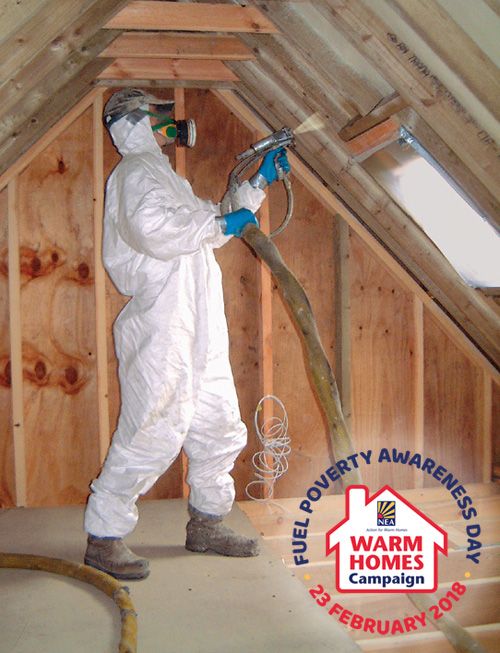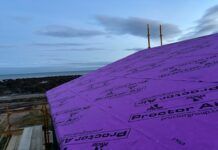 Fuel Poverty Awareness Day, which takes place on Friday, February 23 highlights the problems that many households face struggling to keep their homes warm. National Energy Action (NEA), the fuel poverty charity, is campaigning to tackle this issue. Many households are increasingly concerned about paying their energy bills, or even whether they will be able to afford them at all with ongoing fuel price increases.
Fuel Poverty Awareness Day, which takes place on Friday, February 23 highlights the problems that many households face struggling to keep their homes warm. National Energy Action (NEA), the fuel poverty charity, is campaigning to tackle this issue. Many households are increasingly concerned about paying their energy bills, or even whether they will be able to afford them at all with ongoing fuel price increases.
The British Urethane Foam Contractors Association (BUFCA), for sprayed and injected polyurethane insulation, advises that the health of the nation is at risk when there are many people living in homes which are inadequately heated. Homes which are well insulated will retain the heat for longer, resulting in householders being able to turn down the heating sooner.
The NEA reports that “loft and cavity wall insulation can make a big difference to bills and comfort, as can replacing an old boiler.”
Spray-applied or injected polyurethane foam will reportedly provide better insulation than the equivalent thickness of most insulation materials, whilst stabilising the roof and walls.
For superior insulation performance, the foam, spray-applied at rafter level, together with the existing 100mm layer of insulation at joist level, brings the thermal performance right up to today’s standards and even avoids the need to ventilate the roof space.
Injected cavity wall insulation provides an insulating barrier and provides stability to the walls, avoiding the expensive job of replacing wall tiles. The foam is also said to be beneficial in hard-to-treat properties, which are unsuitable for other materials, or for homes at risk of flooding, where other products might not survive.
Due to the expanding properties of the foam, air leakage, draughts and cold spots are reportedly eliminated, providing ‘superior’ energy-saving insulation and carbon savings.



